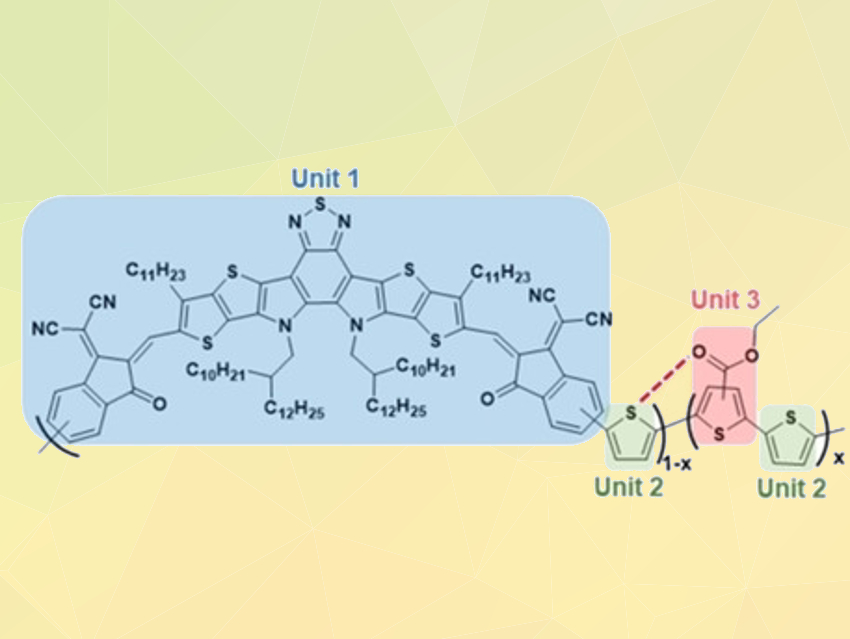All-polymer solar cells (all-PSCs) are based on both polymer donors and acceptors. They have advantages such as good thermal stability, high mechanical strength, and stretchability. However, their power conversion efficiency (PCE) lags behind that of PSCs with small-molecule acceptors (SMAs).
Lei Meng, Institute of Chemistry, Chinese Academy of Sciences, Beijing, Harald Ade, North Carolina State University, Raleigh, USA, Yongfang Li, Institute of Chemistry and University of the Chinese Academy of Sciences, both Beijing, and Soochow University, Suzhou, China, and colleagues have developed a series of new n-type conjugated polymer acceptors. The acceptors, called PTPBT-ETx (pictured, x = 0.1, 0.2, 0.3, 0.4, 0.5 and 0.75), were prepared by polymerizing a small-molecule acceptor unit (pictured in blue) with a thiophene connecting unit (pictured in green) and a controlled amount of an 3‐ethylesterthiophene (ET, pictured in red) unit. The team used a Stille cross-coupling polymerization to connect the monomers.
The acceptors show narrow bandgaps and strong absorption in the near-infrared (NIR) region. All-PSCs based on PTPBT-ET0.3 have a PCE of over 12.5 % and long‐term photostability over 300 hours. The variable composition allows the team to tune the optical, electronic, and photovoltaic properties of the acceptors by simply changing the molar ratio of the ET functional unit.
- High‐Performance All‐Polymer Solar Cells: Synthesis of Polymer Acceptor by a Random Ternary Copolymerization Strategy,
Jiaqi Du, Ke Hu, Lei Meng, Indunil Angunawela, Jinyuan Zhang, Shucheng Qin, Alex Liebman‐Pelaez, Chenhui Zhu, Zhanjun Zhang, Harald Ade, Yongfang Li,
Angew. Chem. Int. Ed. 2020.
https://doi.org/10.1002/anie.202005357



